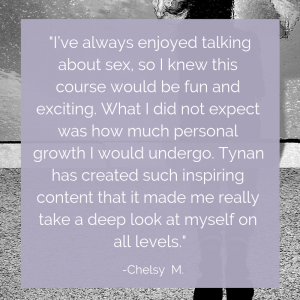[vc_row][vc_column][vc_column_text css=”.vc_custom_1655208046361{margin-bottom: 0px !important;}”]One of my favourite aspects of getting to know more doulas is hearing everyone’s “Why I became a birth worker story”. While there are common themes, every doula’s story is unique and visceral. Our motivations are often connected to our own experiences of birth trauma or the traumatic experience of a loved one. Others want to disrupt the systemic injustices of the medicalized birth model that have impacted them and their community directly. Others are “birth nerds” who are just fascinated by all things birth and baby. Others remember their own experience of wishing they had had more support and more information and want to provide that for others.
Our specific reasons are as unique as we all are. Yet, many of us struggle to communicate this innate individuality to prospective clients. It can be hard to know how to make what you offer clients sound different from the standard list of doula services: “continuous labour support, informational support, assistance with establishing a good latch, emotional needs during labour, non-medical comfort” etc. All of those services are invaluable, but we also know that parents looking for a doula are not just looking for another clinical person with certain skills. Creating marketing materials that clearly convey how you will deliver those services in a way that is different from any other doula can be very elusive.
This is where brand identity comes into play. To be honest, when I hear the word “brand” the first thing that pops into my head is that shoe company’s swoosh. But branding is actually much more complex than an eye-catching, memorable logo. When we see that iconic swoosh, we have specific feelings and perceptions about who wears those shoes and who we would be in them, as compared to any other athletic footwear.
Similarly, our brand as birth workers needs to make it intuitively clear to prospective clients who we are in the birth room and who our support will affirm them to be. When we connect with our audience using a strong brand identity, our business name, logos, shapes, and colours all fit together seamlessly to tell the story of who we are and how the way we do what we do is different from any other doula in our community.
Another thing I have observed about doulas is that the birth worker community is collaborative rather than competitive. Stemming from our deeply personal reasons for taking up this labour of love, we want our clients to find the best fit for their needs. We want a consistent stream of clients without having to haggle with each other for our share of the market.
On Tuesday, June 14 at 7 PM ET, Business Consultant Gaileen Flaman will be supporting us to ensure that our public presence stands out from the crowd. Using a mix of self-reflection, visualization, and storytelling exercises we will emerge with the ability to market with precision and cohesion. This is an invaluable opportunity for anyone building their business who wants to know how to tap into the clients that are looking for you. You can register for the Building your Brand Webinar here!
The webinar will be close-captioned. Ticket holders who are unable to attend the webinar live will receive a recording of the session within two business days.[/vc_column_text][/vc_column][/vc_row]




 hat’s as important as knowledge, is also self-reflection. Has someone ever told you about a food they love to eat that made you want to gag? More than one of my family members hates chocolate, like, really hates it. Luckily, because most people I know love chocolate at least half as much as I do, I don’t feel ashamed for my love of chocolate when so-and-so closes their eyes and makes a gag sound. Sex is similar and in a very important way also different. Because sex is so taboo, and most of us have felt some kind of judgement or shame for some aspect of our sexuality over the course of our lifetime, it’s all the more important to check-ourselves.
hat’s as important as knowledge, is also self-reflection. Has someone ever told you about a food they love to eat that made you want to gag? More than one of my family members hates chocolate, like, really hates it. Luckily, because most people I know love chocolate at least half as much as I do, I don’t feel ashamed for my love of chocolate when so-and-so closes their eyes and makes a gag sound. Sex is similar and in a very important way also different. Because sex is so taboo, and most of us have felt some kind of judgement or shame for some aspect of our sexuality over the course of our lifetime, it’s all the more important to check-ourselves. Tynan Rhea is a settler with German and Czechoslovakian ancestry. Tynan has a private practice online and in Toronto as a counselor, aromatherapist, and doula specializing in sex, intimacy, and relationships throughout the reproductive years and founder of PostpartumSex.com. Tynan graduated from the University of Waterloo with a Joint Honours Bachelor of Arts in Psychology and Sexuality, Marriage, & Family. They received their doula training from the Revolutionary Doula Training program and their aromatherapy training with Anarres Apothecary Apprenticeship program. Tynan is currently enrolled at Yorkville University doing their Masters of Arts Counselling Psychology degree. Tynan approaches their practice from sex-positive, trauma-informed, anti-oppressive, and feminist frameworks. Find Tynan on
Tynan Rhea is a settler with German and Czechoslovakian ancestry. Tynan has a private practice online and in Toronto as a counselor, aromatherapist, and doula specializing in sex, intimacy, and relationships throughout the reproductive years and founder of PostpartumSex.com. Tynan graduated from the University of Waterloo with a Joint Honours Bachelor of Arts in Psychology and Sexuality, Marriage, & Family. They received their doula training from the Revolutionary Doula Training program and their aromatherapy training with Anarres Apothecary Apprenticeship program. Tynan is currently enrolled at Yorkville University doing their Masters of Arts Counselling Psychology degree. Tynan approaches their practice from sex-positive, trauma-informed, anti-oppressive, and feminist frameworks. Find Tynan on